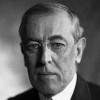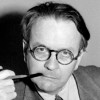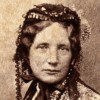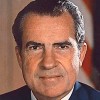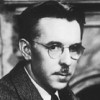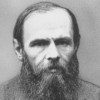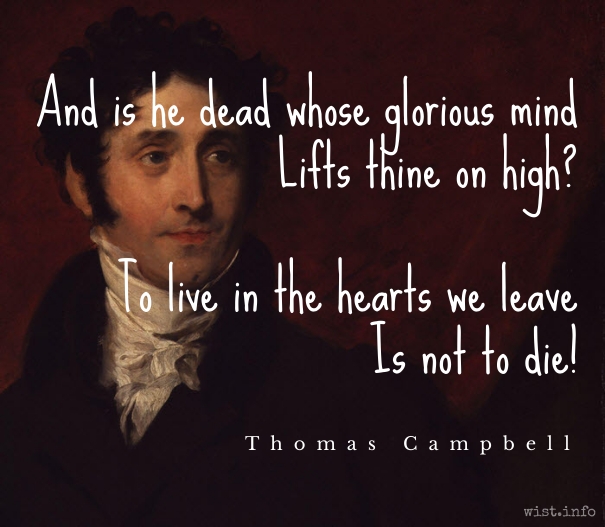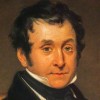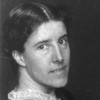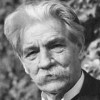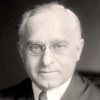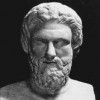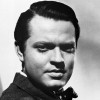All wise Princes have ever usd to instill into their People, a Contempt, and Hatred of Forraine Nations, to render them the more united among themselves.
Samuel Butler (1612-1680) English poet, satirist, painter, philosopher [Hudibras Butler]
“Princes and Government,” Note-Books
Full text.
Benevolence never developed a man or a nation. We do not want a benevolent government. We want a free and a just government. Every one of the great schemes of social uplift which are now so much debated by noble people amongst us is based, when rightly conceived, upon justice, not upon benevolence.
There are two kinds of truth: the truth that lights the way and the truth that warms the heart. The first of these is science, and the second is art. Neither is independent of the other or more important than the other. Without art science would be as useless as a pair of high forceps in the hands of a plumber. Without science art would become a crude mess of folklore and emotional quackery. The truth of art keeps science from becoming inhuman, and the truth of science keeps art from becoming ridiculous.
I am speaking now of the highest duty we owe our friends, the noblest, the most sacred — that of keeping their own nobleness, goodness, pure and incorrupt. … If we let our friend become cold and selfish and exacting without a remonstrance, we are no true lover, no true friend.
If someone comes to you entreating aid, do not say in refusal: “Trust in God, He will help,” but act as if there were no God, and none to help but you.
Moshe Leib Sassover (1745-1807) Rabbi, founder of the Sassov Hasidic dynasty
(Attributed)
In Louis I. Newman, comp., The Hasidic Anthology, 186.1 (1934)
Unless we can extensively program our behavior, we waste tremendous amounts of information-processing capacity on trivia. This is why we form habits. Watch a committee break for lunch and then return to the same room: almost invariably its members seek out the same seats they occupied earlier. … Choosing the same seat spares us the need to survey and evaluate other possibilities.
This thing all things devours:
Birds, beasts, trees, flowers;
Gnaws iron, bites steel;
Grinds hard stones to meal;
Slays king, ruins town,
And beats high mountain down.J.R.R. Tolkien (1892-1973) English writer, fabulist, philologist, academic [John Ronald Reuel Tolkien]
The Hobbit, ch. 5 “Riddles in the Dark” [Gollum] (1937)
(Source)
One of Gollum's riddles for Bilbo. The answer is "time."
How terribly hard and almost impossible it is to tell the truth. More than anything else, the artist in us prevents us from telling aught as it really happened. We deal with the truth as the cook deals with meat and vegetables.
Poetry demands a man with special gift for it, or else one with a touch of madness in him; the former can easily assume the required mood, and the latter may be actually beside himself with emotion.
[διὸ εὐφυοῦς ἡ ποιητική ἐστιν ἢ μανικοῦ: τούτων γὰρ οἱ μὲν εὔπλαστοι οἱ δὲ ἐκστατικοί εἰσιν.]
Aristotle (384-322 BC) Greek philosopher
Poetics [Περὶ ποιητικῆς, De Poetica], ch. 17 / 1455a.33 (c. 335 BC) [tr. Bywater (1909)]
(Source)
Original Greek. Fyfe (below) notes μανικός to mean "genius to madness near allied," and adds "Plato held that the only excuse for a poet was that he couldn't help it." A possible source of Seneca's "touch of madness" attribution to Aristotle. Alternate translations:
Poetry implies either a happy gift of nature or a strain of madness. In the one case a man can take the mould of any character; in the other, he is lifted out of his proper self.
[tr. Butcher (1895)]
Poetry is the work for the finely constituted or the hysterical; for the hysterical are impressionable, whereas the finely constituted are liable to outbursts.
[tr. Margoliouth (1911); whiles this seems backward, Margoliouth further explains in his footnote.]
Poetry needs either a sympathetic nature or a madman, the former being impressionable and the latter inspired.
[tr. Fyfe (1932)]
Hence the poetic art belongs either to a naturally gifted person or an insane one, since those of the former sort are easily adaptable and the latter are out of their senses.
[tr. Sachs (2006)]
In order to write tragic poetry, you must be either a genius who can adapt himself to anything, or a madman who lets himself get carried away.
[tr. Kenny (2013)]
Great perils have this beauty, that they bring to light the fraternity of strangers.
[Les grands périls ont cela de beau qu’ils mettent en lumière la fraternité des inconnus.]
The problem with communication is the illusion that it has occurred.
George Bernard Shaw (1856-1950) British playwright and critic
(Spurious)
Frequently attributed, but not found in Shaw's writings. Most likely originated by William Hollingsworth Whyte, "Is Anybody Listening?" Fortune (Sep 1950). More discussion: The Biggest Problem in Communication Is the Illusion That It Has Taken Place – Quote Investigator.
All rising to a great place is by a winding stair.
Francis Bacon (1561-1626) English philosopher, scientist, author, statesman
“Of Great Place,” Essays, No. 11 (1625)
(Source)
When people keep telling you that you can’t do a thing, you kind of like to try it.
Margaret Chase Smith (1897-1965) American politician (US Senator, Maine)
In Time, “Nation: Madame Candidate” (7 Feb 1964)
On running for President. Full text.
It’s not the tragedies that kill us. It’s the messes.
Dorothy Parker (1893-1967) American writer
“The Art of Fiction,” #13, interview, The Paris Review (Summer 1956)
(Source)
There is an idea abroad among moral people that they should make their neighbors good. One person I have to make good: myself.
Robert Louis Stevenson (1850-1894) Scottish essayist, novelist, poet
“A Christmas Sermon” (2), Across the Plains, ch. 12 (1880)
(Source)
The last thing abandoned by a party is its phraseology, because among political parties, as elsewhere, the vulgar make the language, and the vulgar abandon more easily the ideas that have been instilled into it than the words that it has learnt.
Alexis de Tocqueville (1805-1859) French writer, diplomat, politician
France Before the Consulate, ch. 1 “How the Republic was ready to accept a master” (1862)
Alt. trans.:
- "The last thing a political party gives up is its vocabulary. This is because, in party politics as in other matters, it is the crowd who dictates the language, and the crowd relinquishes the ideas it has been given more readily than the words it has learned."
- The last thing that a party abandons is its language."
The degree of civilization in a society can be judged by entering its prisons.
Fyodor Dostoyevsky (1821-1881) Russian novelist
(Attributed)
Sometimes cited to Dostoyevsky's The House of the Dead (1862) [tr. Garnett (1957)], which is a semi-autobiographical work about a Siberian prison camp, but the quotation cannot be found there.
See also Buck, Johnson.
In old age the root of virtue is fatigue; in youth, fear.
Paul Eldridge (1888-1982) American educator, novelist, poet
Maxims for a Modern Man, #258 (1965)
(Source)
And is he dead whose glorious mind
Lifts thine on high?
To live in the hearts we leave
Is not to die!
It is told that Buddha, going out to look on life, was greatly daunted by death. “They all eat one another!” he cried, and called it evil. This process I examined, changed the verb, said, “They all feed one another,” and called it good.
Charlotte Perkins Gilman (1860-1935) American sociologist, writer, reformer, feminist
The living of Charlotte Perkins Gilman: an autobiography, ch. 4 “Building a Religion” (1935)
Full text.
Ignorance, when it is voluntary, is criminal.
Samuel Johnson (1709-1784) English writer, lexicographer, critic
The History of Rasselas, Prince of Abissinia, ch. 30 (1759)
(Source)
As they sang the hobbit felt the love of beautiful things made by hands and by cunning and by magic moving through him, a fierce and a jealous love, the desire of the hearts of dwarves.
J.R.R. Tolkien (1892-1973) English writer, fabulist, philologist, academic [John Ronald Reuel Tolkien]
The Hobbit, ch. 1 “An Unexpected Party” (1937)
(Source)
The sense of worth derived from creative work depends upon “recognition” by others, which is never automatic. As a result, the path of self-realization, even when it is the only open one, is taken with reluctance. Men of talent have to be goaded to engage in creative work. The groans and laments of even the most gifted and prolific echo through the ages.
In youth our judgments are obscured by our hopes; in age, by our regrets.
Paul Eldridge (1888-1982) American educator, novelist, poet
Maxims for a Modern Man, #144 (1965)
(Source)
There is a sacred realm of privacy for every man and woman where he makes his choices and decisions — a realm of his own essential rights and liberties into which the law, generally speaking, must not intrude.
Just as the water of the streams we see is small in amount compared to that which flows underground, so the idealism which becomes visible is small in amount compared with what men and women bear locked in their hearts, unreleased or scarcely released. To unbind what is bound, to bring the underground waters to the surface: mankind is waiting and longing for such as can do that.
Poetry is more philosophical and more serious than history; poetry utters universal truths, history particular statements.
[διὸ καὶ φιλοσοφώτερον καὶ σπουδαιότερον ποίησις ἱστορίας ἐστίν: ἡ μὲν γὰρ ποίησις μᾶλλον τὰ καθόλου, ἡ δ᾽ ἱστορία τὰ καθ᾽ ἕκαστον λέγει.]
Aristotle (384-322 BC) Greek philosopher
Poetics [Περὶ ποιητικῆς, De Poetica], ch. 9 / 1451b.5 (c. 335 BC) [tr. Kenny (2013)]
Original Greek. Alternate translations:
Poetry, therefore, is a more philosophical and a higher thing than history: for poetry tends to express the universal, history the particular.
[tr. Butcher (1895)]
Poetry is something more philosophic and of graver import than history, since its statements are of the nature rather of universals, whereas those of history are singulars.
[tr. Bywater (1909)]
Poetry is the more scientific and the higher class; for it generalizes rather, whereas history particularizes.
[tr. Margoliouth (1911)]
Poetry is something more scientific and serious than history, because poetry tends to give general truths while history gives particular facts.
[tr. Fyfe (1932)]
Poetry is more philosophical and more serious than history; in fact, poetry speaks more of universals, whereas history of particulars.
[tr. Halliwell (1986)]
Poetry is a more philosophical and more serious thing than history: poetry tends to speak of universals, history of particulars.
[tr. Janko (1987), sec. 3.2.3]
Poetry is more philosophical and more serious than history; poetry tends to speak of universals, history of particulars.
[tr. Janko (1987), sec. 3.2.3]
Poetry is more speculative and more serious business than history: for poetry deals more with universals, history with particulars.
[tr. Whalley (1997)]
Poetry is a more philosophical and more serious thing than history, since poetry speaks more of things that are universal, and history of things that are particular.
[tr. Sachs (2006)]
Poetry is finer and more philosophical than history; for poetry expresses the universal, and history only the particular.
[tr. Unknown]
Nothing is more dangerous than discontinued labor; it is a habit lost. A habit easy to abandon, difficult to resume.
[Rien n’est plus dangereux que le travail discontinué; c’est une habitude qui s’en va. Habitude facile à quitter, difficile à reprendre.]
All of a sudden, I’m older than my parents were when I thought they were old.
Lois Wyse (1926-2007) American advertising executive, author, columnist [née Lois Wohlgemuth]
Funny, You Don’t Look Like a Grandmother, “Age-Old Conversations” (1990)
As a member of this court I am not justified in writing my private notions of policy into the Constitution, no matter how deeply I may cherish them or how mischievous I may deem their disregard.
Political parties exist to secure responsible government and to execute the will of the people. From these great tasks both of the old parties have turned aside. Instead of instruments to promote the general welfare, they have become the tools of corrupt interests which use them impartially to serve their selfish purposes. Behind the ostensible government sits enthroned an invisible government owing no allegiance and acknowledging no responsibility to the people. To destroy this invisible government, to dissolve the unholy alliance between corrupt business and corrupt politics is the first task of the statesmanship of the day.
Theodore Roosevelt (1858-1919) American politician, statesman, conservationist, writer, US President (1901-1909)
Progressive Party Platform (Aug 1912)
(Source)
Party platform attributed to Roosevelt. Also restated by him in An Autobiography, ch. 15 (1913):Behind the ostensible Government sits enthroned an invisible Government, owing no allegiance and acknowledging no responsibility to the people. To destroy this invisible Government, to dissolve the unholy alliance between corrupt business and corrupt politics, is the first task of the statesmanship of the day. ... This country belongs to the people. Its resources, its business, its laws, its institutions, should be utilized, maintained, or altered in whatever manner will best promote the general interest.Released as a sound recording, "The Progressive Covenant With The People," during the campaign for locations where Roosevelt was unable to visit to speak.
PISTHETAERUS: Undoubtedly; words give wings to the mind and make a man soar to heaven.
Aristophanes (c. 450-c. 388 BC) Athenian comedic playwright
The Birds, l. 1447-48 (414 BC) [tr. O’Neill 1938)
Full text.
The wit makes fun of other persons; the satirist makes fun of the world; the humorist makes fun of himself, but in so doing, he identifies himself with people — that is, people everywhere, not for the purpose of taking them apart, but simply revealing their true nature.
Ladies and gentlemen, I have a grave announcement to make. Incredible as it may seem, strange beings who landed in New Jersey tonight are the vanguard of an invading army from Mars.
The Bill of Rights was designed trustfully to prohibit forever two of the favorite crimes of all known governments: the seizure of private property without adequate compensation and the invasion of the citizen’s liberty without justifiable cause and due process.





